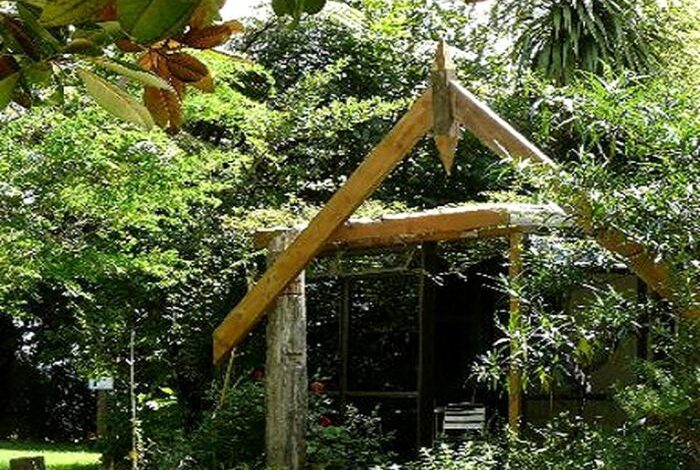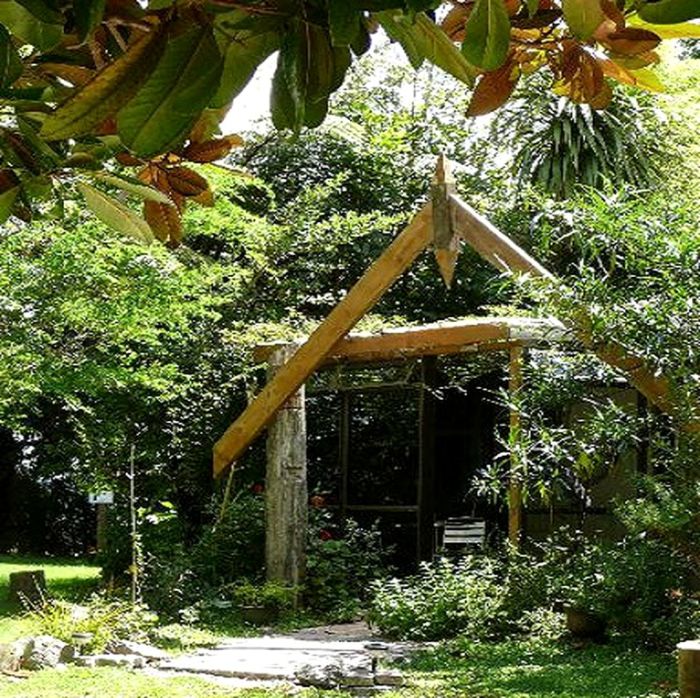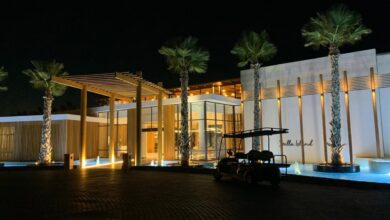Eco-Friendly Hotels In New Zealand A Sustainable Retreat

Eco-Friendly Hotels In New Zealand offer a unique blend of breathtaking natural beauty and responsible tourism. Nestled amidst New Zealand’s stunning landscapes, these accommodations prioritize sustainability, reflecting the country’s commitment to preserving its pristine environment. From cozy lodges to luxurious resorts, each property embodies eco-tourism principles, creating a harmonious balance between adventure and conservation. These hotels showcase a commitment to minimizing their environmental footprint while maximizing the guest experience.
This exploration delves into the core values of eco-friendly hotels in New Zealand, examining the diverse sustainability practices employed across various accommodations. We’ll uncover how these hotels leverage renewable energy, conserve water, and manage waste efficiently. Furthermore, we’ll examine the impact these practices have on the local communities and the unique guest experiences offered. This in-depth look at New Zealand’s eco-lodges, guesthouses, and resorts will reveal how these establishments prioritize sustainable practices, appealing to travelers seeking environmentally conscious escapes.
Future Trends and Innovations

The eco-tourism sector in New Zealand is experiencing a rapid evolution, driven by growing consumer awareness and government initiatives. Hotels are increasingly embracing sustainable practices, recognizing that environmental responsibility is not just a trend but a crucial element for long-term success. This evolution demands a forward-thinking approach, incorporating innovative technologies and adapting to evolving consumer preferences.The future of eco-friendly hotels in New Zealand hinges on a blend of technological advancements, responsible design choices, and a commitment to minimizing environmental impact.
Hotels are striving to create a seamless balance between luxury and sustainability, demonstrating that environmentally conscious practices can enhance the guest experience while preserving the natural beauty of the country.
Emerging Trends in Eco-Friendly Hotel Design
New Zealand’s eco-friendly hotels are embracing innovative design approaches. These designs prioritize the use of locally sourced materials, maximizing natural light and ventilation, and minimizing energy consumption through advanced building technologies. This shift towards environmentally conscious construction not only reduces the hotel’s carbon footprint but also often enhances guest comfort and appreciation for the surrounding natural environment.
Innovative Technologies in Eco-Friendly Hotels
Several innovative technologies are being implemented in eco-friendly hotels to reduce their environmental footprint. Solar panels, rainwater harvesting systems, and energy-efficient appliances are becoming standard features. Smart building management systems are optimizing energy use, reducing water consumption, and enhancing guest comfort. These advancements are not just about minimizing waste but also about enhancing the guest experience through improved amenities and a more sustainable atmosphere.
Potential Challenges and Opportunities in Eco-Tourism
The future of eco-tourism in New Zealand presents both challenges and opportunities. Maintaining the delicate balance between tourism growth and environmental preservation is paramount. Addressing issues such as waste management, water conservation, and energy efficiency is crucial. Conversely, opportunities abound in the development of innovative sustainable tourism models that demonstrate responsible practices and attract environmentally conscious travelers.
These models are likely to create new revenue streams for hotels and promote a more sustainable future for the tourism industry.
Technology Supporting Sustainability Efforts
Technology plays a pivotal role in supporting sustainability efforts within eco-friendly hotels. Smart technologies can monitor energy and water consumption, providing real-time data for optimization. Guest feedback systems can facilitate improvement in environmental practices and enhance the overall guest experience. Data-driven decision-making is key to creating sustainable operations and a more responsible approach to tourism.
Summary of Future Trends and Innovations
| Trend/Innovation | Description | Impact |
|---|---|---|
| Locally Sourced Materials | Using locally sourced building materials and furnishings to minimize transportation emissions and support local economies. | Reduces carbon footprint, supports local businesses. |
| Smart Building Management Systems | Utilizing technology to optimize energy use, water conservation, and waste management. | Reduces energy and water consumption, minimizes waste, enhances efficiency. |
| Renewable Energy Sources | Implementing solar panels, wind turbines, and other renewable energy sources to power the hotel. | Reduces reliance on fossil fuels, lowers carbon emissions. |
| Water Conservation Strategies | Implementing efficient water fixtures, rainwater harvesting systems, and greywater recycling to conserve water resources. | Reduces water consumption, conserves precious water resources. |
| Waste Reduction and Recycling | Implementing comprehensive waste reduction and recycling programs, including composting. | Minimizes environmental impact, reduces waste going to landfills. |
Illustrative Examples of Sustainable Practices: Eco-Friendly Hotels In New Zealand
Eco-friendly hotels are increasingly adopting innovative and impactful sustainable practices across various facets of their operations. This commitment extends beyond superficial gestures, reflecting a genuine dedication to environmental responsibility and a recognition of the interconnectedness of business and ecological well-being. From sourcing materials to managing waste, these hotels are striving to minimize their environmental footprint.This section delves into the practical implementations of sustainability within eco-friendly hotels.
It showcases examples of innovative features and detailed descriptions of sustainable practices across different areas of hotel operation, including landscaping, food service, guest amenities, and overall accommodations.
Landscaping Practices
Sustainable landscaping in eco-friendly hotels prioritizes native flora and minimizes water usage. Native plants are well-adapted to local climates, requiring less water and maintenance compared to exotic species. Rainwater harvesting systems are often integrated to provide irrigation water, further reducing the hotel’s reliance on municipal supplies. Deliberate use of drought-tolerant plants and careful site design reduces the need for extensive watering schedules.
Food Service Sustainability
Eco-friendly hotels often implement sustainable food sourcing strategies, prioritizing local and seasonal produce. This reduces transportation emissions and supports local farmers. Minimizing food waste is another crucial aspect, with hotels often implementing composting programs and educating staff on proper food handling and storage techniques. Menus frequently highlight locally sourced ingredients, showcasing the region’s culinary bounty while reducing the environmental impact of food transportation.
Restaurants may also implement plant-based options to further reduce the environmental impact of meat production.
Guest Amenities and Accommodations, Eco-Friendly Hotels In New Zealand
Hotels often prioritize the use of locally sourced and recycled materials in guest rooms. These materials are often chosen for their durability and low environmental impact. Water conservation features like low-flow showerheads and toilets are common, and energy-efficient appliances and lighting are essential elements. Sustainable cleaning products, made with biodegradable ingredients, are employed throughout the hotel. Some accommodations incorporate features like solar panels and rainwater harvesting systems, demonstrating an integrated approach to sustainability.
Illustrative Examples of Hotel Features
Eco-friendly hotels often incorporate a range of innovative features to minimize their environmental impact. Solar panels are a common sight, generating renewable energy to power the hotel’s operations. Rainwater harvesting systems collect rainwater for irrigation and other non-potable uses, reducing reliance on municipal water supplies. Greywater recycling systems further optimize water usage by treating wastewater for reuse in non-drinking applications.
These features not only reduce environmental impact but can also save the hotel significant operating costs in the long run.
Eco-Friendly Hotel Accommodations
Several eco-friendly hotels showcase innovative design and sustainable practices in their accommodations. One example might feature rooms constructed with locally sourced timber and bamboo, minimizing the environmental impact of transportation and resource extraction. Natural light is maximized through strategically placed windows and skylights, reducing reliance on artificial lighting. The use of recycled and reclaimed materials in furniture and décor is also a common feature.
Another example might use a geothermal heating and cooling system, utilizing the Earth’s natural heat or cool temperatures to regulate the interior environment.
Last Point
In conclusion, Eco-Friendly Hotels In New Zealand represent a significant step towards sustainable tourism, showcasing innovative approaches to responsible hospitality. By embracing sustainable practices, these hotels not only protect the environment but also offer unique experiences that connect guests with nature. Their commitment to local sourcing, community involvement, and transparent practices sets a high standard for the future of tourism in New Zealand.
The future of eco-tourism in New Zealand looks promising, driven by the commitment of these hotels to environmental stewardship and guest satisfaction.




